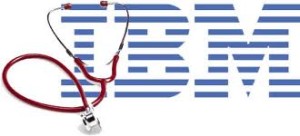
 IBM today shared short and long term recommendations with Pune Municipal Corporation for providing its citizens with improved health and transportation services. Many of the recommendation involve the use of mobile technology and the analysis of large and complex quantities of electronic information, often referred to as “Big Data.”
IBM today shared short and long term recommendations with Pune Municipal Corporation for providing its citizens with improved health and transportation services. Many of the recommendation involve the use of mobile technology and the analysis of large and complex quantities of electronic information, often referred to as “Big Data.”
The IBM team presented its plan after completing a three-week pro bono consulting engagement for Pune, which had been awarded a Smarter Cities Challenge grant. These competitive grants fund the deployment of up to six top IBM experts to cities worldwide. There, the IBM team studies locally important issues, then provides the cities’ leadership with feedback. For this project, the IBM team, assisted by IBM’s India Software Lab, worked with several teams from city departments, the local medical community, academia and citizenry to better understand Pune’s challenges.

For Pune’s healthcare, IBM felt that the use of low cost mobile phones to gather and report information could help officials more quickly identify and resolve both short term events, such as disease outbreaks, and chronic public health issues, such as infant mortality. For example, with the proper consents, citizens could use their mobile phones as a way to automatically update physicians about their health status. Their phones might also receive SMS alerts when a child is due to receive immunization or when precautions need to be taken during public health emergencies. A single, region-wide telephone number to summon emergency responders would make it easier for citizens to receive assistance for health and safety issues, such as for severe illness, accidents and assaults.
Data from mobile devices was also at the heart of IBM’s recommendations to improve public and private transportation. The experts felt that analyzing anonymous cellphone signals and video camera feeds could help transportation and law enforcement officials better pinpoint and address roadways prone to congestion or accidents. More accurate information about travel patterns would allow planners to model and design more convenient, safer, reliable and faster public transportation routes and modes of travel, such as a metro, auto-rickshaws and buses. The availability of detailed data would also enable apps to help travelers plan their trips door to door, and receive timely updates about traffic disruptions.
These measures will take on added significance as the Pune population continues to grow. This has meant a rise in private, motorized transportation and an increase in traffic congestion and accidents. In fact, it is believed that the amount of motorized traffic will account for over 54 percent of the daily trips taken by Pune citizens by 2031 — 5,000,000 trips per day.

Commenting on the recommendations presented by IBM, Mahesh Pathak, IAS, Commissioner, Pune Municipality, said: This is an excellent opportunity for us to modernize our healthcare and transportation systems for the benefits of Pune citizens. After studying the local issues, IBM has identified the key problem areas and recommended solutions to digitize and integrate different aspects of the healthcare and transportation arena. Their deep insights and global expertise will help us chart a range of concrete strategies and policies for the future development of our city.
Pune has always demonstrated a strong passion to re-energize its existing infrastructure towards building a smarter city,” said Mamtha Sharma, Manager for Corporate Citizenship & Corporate Affairs at IBM India. “The Pune Municipal Corporation has supported us with valuable input at every step during our project. We hope that the recommendations made for smarter healthcare and transportation will enhance the quality of life for its citizens.”
IBM’s Smarter Cities Challenge, a competitive grant program for urban areas sponsored by IBM’s citizenship program and International Foundation, is an outgrowth of IBM’s Corporate Service Corps, in which IBM deploys teams of top employees to areas in the developing world to work on projects that intersect business, technology and society. Both IBM’s Smarter Cities Challenge and Corporate Service Corps have sent multiple teams of experts to India, where they have worked on projects spanning economic development, education, social services, healthcare, transportation, and sustainability.
Be a part of Elets Collaborative Initiatives. Join Us for Upcoming Events and explore business opportunities. Like us on Facebook , connect with us on LinkedIn and follow us on Twitter , Instagram.












